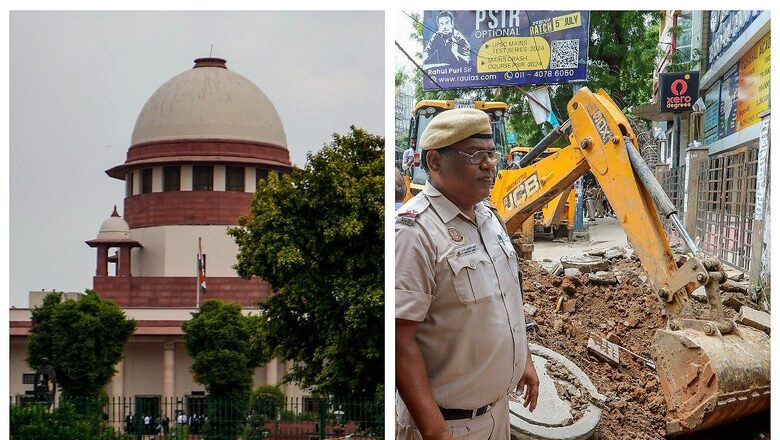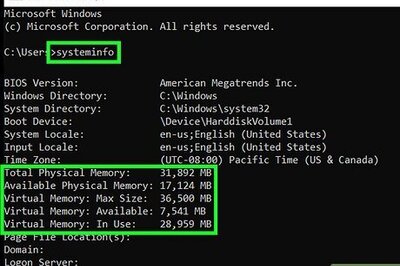
views
On September 3, 2024, the Supreme Court (SC) came down hard on the issue of increasing incidents of ‘bulldozer justice’. “It is a position of law. How can anybody’s house be demolished only because he is an accused? Even if he is a convict, it can’t be done without following the procedure as prescribed by law,” thundered Justice B.R. Gawai.
Justice K.V. Vishwanathan said bluntly, “Why can’t some guidelines be laid down? Notice, time period, response, reply, order, time for legal remedy, avoidance of backdating, some communication with the central secretariat, the nodal agency… so that there is no fear.” He then affirmed that “we propose to lay down certain guidelines on a pan-India basis so that the concerns with regard to the issues raised are taken care of.”
The specific petition before the bench was against the demolition drive in Delhi’s Jahangirpuri soon after the 2022 riots. But bulldozer justice had almost acquired de facto ‘legitimacy’ by its rampant misuse starting from 2017.
Uttar Pradesh Chief Minister Yogi Adityanath was the first to use it. He was, by his supporters, hailed as ‘Bulldozer Baba,’ a title that he was happy to revel in. At one of Yogi’s political rallies, there is TV footage showing his supporters dancing with yellow toy bulldozers. Prime Minister Narendra Modi seemed to support Yogi. At a public meeting during the 2024 national elections, he asked the Opposition to take a ‘tuition’ from CM Yogi on the use of bulldozers.
The apparent endorsement—and popularity—of the use of bulldozers led other BJP-ruled states to emulate Yogi. In Madhya Pradesh, Shivraj Singh Chauhan, during his tenure as Chief Minister, soon acquired the sobriquet of ‘Bulldozer Mama.’ In 2022, 16 houses and 29 structures were demolished in his state following communal riots in Khargone. There have long been allegations that bulldozers are used more against the Muslim minority, and if this is so, it is a most unfortunate development.
This extrajudicial form of bulldozer justice was also followed in Uttarakhand, Haryana, Gujarat, Assam, as well as Rajasthan, a Congress-ruled state, and Maharashtra, where an opposition coalition—the Maha Vikas Aghadi (MVA)—infamously demolished part of actor-politician Kangana Ranaut’s bungalow in Pali Hill.
According to a government affidavit presented in court in August 2023, 443 properties had been demolished by the summary use of bulldozers till then, although an independent fact-finding agency put the figure much higher at 1,208 structures over 87 separate sites, including houses allotted under government approved housing schemes.
The standard defence of authorities using bulldozers has always been that the properties demolished were illegal encroachments or built on unauthorised land and, therefore, liable to be removed. The SC has suitably dismissed this defence. While stating categorically that it was not its intention to protect unauthorised constructions or encroachments on public roads—“not even the temples on the public road”—it has also made it clear that “merely because a person is alleged to have been part of some offence can never be a ground upon which his immovable property can be demolished.”
The demolition of an immovable property can take place only for violation of, and in accordance with, the procedure prescribed in the respective, applicable municipal law or law governing development authorities of the area. In other words, no immovable property can be demolished solely on the ground that the owner or occupant of such property is involved in a criminal offence. Demolition, whether in part or full, can take place only on the grounds mentioned in the municipal law governing legal construction and after following the procedure therein”.
However, what was mostly happening at present was that the immovable property of an alleged accused was first summarily demolished, and then justified on account of being an illegal construction. In the process, all existing legal norms, like providing notice of demolition, judicial hearing, time to remove movable property, and reverifying legal title or defence thereof, were being dispensed with. Moreover, along with the allegedly accused, his entire family was also punished.
The truth is that ‘summary justice’ of this nature is undemocratic, and almost reminiscent of medieval dictatorships. Zero tolerance to crime becomes criminal itself if it is based on zero concern for due process of law. A democracy must provide safeguards against lethal and arbitrary action of the state. However, the perceived ‘popularity’ of such a policy by common people, encouraged state leaders in power to pursue them with even greater blatancy. It is true that partly, support from people came because our judicial processes are so dilatory that most genuine criminals manage to evade justice for years.
‘Encounter killings’ are romanticised for the same reason, and at one time police officials who specialised in them were hailed as heroes. According to the National Human Rights Commission (NHRC), in 2016-17, a case of encounter killing was registered once every three days. At least 813 such killings were recorded, with no convictions of any officials during this period.
The answer to judicial delays is to reform the judicial system, not dispense with it entirely. Besides, once government authorities get emboldened by such policies, no one knows who the next victim of their extrajudicial hubris will be. In Ayodhya, in the run-up to the inauguration of the Ram Mandir, innumerable structures belonging to Hindus were summarily bulldozed. The anger created by this was part of the reason why the BJP candidate lost from here in the 2024 national elections.
The Supreme Court’s stand against ‘bulldozer justice’ needs to be sincerely welcomed, although I wish the apex court had taken up this matter earlier. India is, and must remain, a democracy.
The author is a former diplomat, an author and a politician. Views expressed in the above piece are personal and solely those of the author. They do not necessarily reflect News18’s views.




















Comments
0 comment